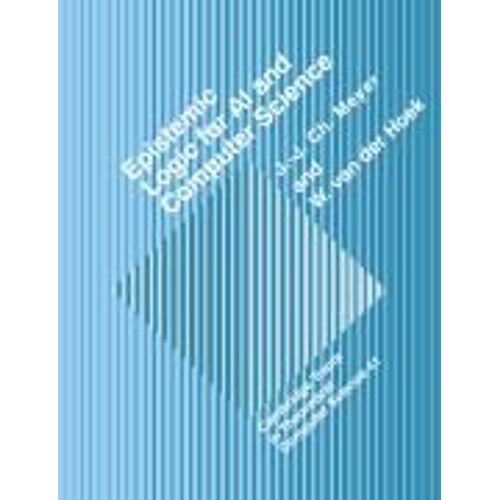

Epistemic Logic for AI and Computer Science -
- Format: Broché
- 372 pages Voir le descriptif
Vous en avez un à vendre ?
Vendez-le-vôtre120,61 €
Produit Neuf
Ou 30,15 € /mois
- Livraison : 25,00 €
- Livré entre le 8 et le 13 août
- Payez directement sur Rakuten (CB, PayPal, 4xCB...)
- Récupérez le produit directement chez le vendeur
- Rakuten vous rembourse en cas de problème
Gratuit et sans engagement
Félicitations !
Nous sommes heureux de vous compter parmi nos membres du Club Rakuten !
TROUVER UN MAGASIN
Retour

Avis sur Epistemic Logic For Ai And Computer Science de Collectif Format Broché - Livre
0 avis sur Epistemic Logic For Ai And Computer Science de Collectif Format Broché - Livre
Donnez votre avis et cumulez 5
Les avis publiés font l'objet d'un contrôle automatisé de Rakuten.
Présentation Epistemic Logic For Ai And Computer Science de Collectif Format Broché
- LivreAuteur(s) : CollectifEditeur : Cambridge University PressLangue : AnglaisParution : 01/02/2004Format : Moyen, de 350g à 1kgNombre de pages : 372Expédition : 662Dimensions : 24.5 x 18.9 x...

Résumé :
Epistemic logic has grown from its philosophical beginnings to find diverse applications in computer science as a means of reasoning about the knowledge and belief of agents. This book, based on courses taught at universities and summer schools, provides a broad introduction to the subject; many exercises are included together with their solutions. The authors begin by presenting the necessary apparatus from mathematics and logic, including Kripke semantics and the well-known modal logics K, T, S4 and S5. Then they turn to applications in the contexts of distributed systems and artificial intelligence: topics that are addressed include the notions of common knowledge, distributed knowledge, explicit and implicit belief, the interplays between knowledge and time, and knowledge and action, as well as a graded (or numerical) variant of the epistemic operators. The problem of logical omniscience is also discussed extensively. Halpern and Moses' theory of honest formulae is covered, and a digression is made into the realm of non-monotonic reasoning and preferential entailment. Moore's autoepistemic logic is discussed, together with Levesque's related logic of 'all I know'. Furthermore, it is shown how one can base default and counterfactual reasoning on epistemic logic.
Sommaire:
Preface; 1. Introduction; 2. Basics: the modal approach to knowledge; 3. Various notions of knowledge and belief; 4. Knowledge and ignorance; 5. Default reasoning by epistemic logic; References; Appendices; Answers to exercises; Index.
Détails de conformité du produit
Personne responsable dans l'UE
